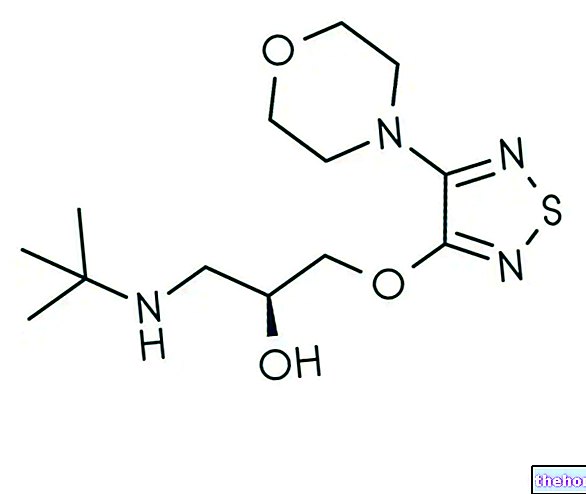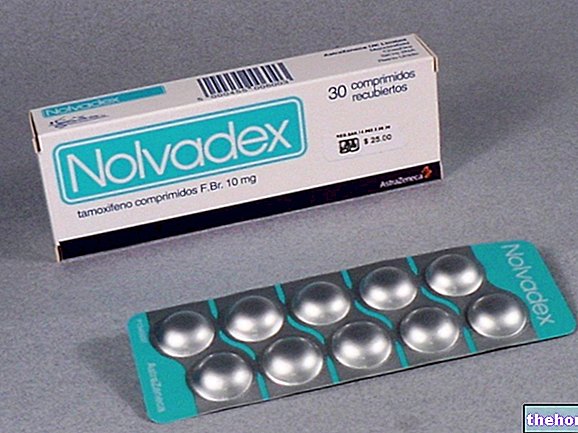REACTINE ® is a drug based on Cetirizine dihydrochloride + Pseudoephedrine hydrochloride
THERAPEUTIC GROUP: Antihistamines for systemic use - H1 antagonist

Indications REACTINE ® - Cetirizine
REACTINE ® is indicated in the treatment of typical symptoms of allergic diseases and in particular of rhinitis, characterized by nasal hypersecretion, nasal and ocular itching, tearing and congestion of the upper airways.
Mechanism of action REACTINE ® - Cetirizine
REACTINE ® is a medicinal specialty widely used in the clinical setting, due to its excellent therapeutic properties attributable to the presence of two different active ingredients characterized by complementary biological mechanisms.
More precisely :
- Cetirizine is a second generation antihistamine antagonist of H1 receptors, and therefore has pharmacokinetic properties such as to optimize the therapeutic action by reducing both the vascular permeability induced at the level of penivenular capillaries, and the typical bronchospasm linked to the activation of histaminergic receptors. present on the smooth muscles, while controlling the sedating action at the central level.
- Pseudoephedrine, on the other hand, is an active principle with sympathomimetic activity which, by exerting a vasoconstrictive action at the nasal level, reduces the edema of the mucosa, reducing nasal congestion and restoring the patency of the respiratory tract.
Taken per os REACTINE ® carries out its therapeutic action in a few minutes, keeping it active for several hours, thus ensuring administration at most every 12 hours.
The elimination of both active ingredients is carried out mainly by the kidney.
Studies carried out and clinical efficacy
THE GREAT EFFECTIVENESS OF THE ASSOCIATION BETWEEN CETIRIZINE AND PSEUDOEFEDRINE
Int J Clin Pharmacol Ther. 2009 Feb; 47: 71-7.
A combination of cetirizine and pseudoephedrine has therapeutic benefits when compared to single drug treatment in allergic rhinitis.
Badorrek P, Dick M, Schauerte A, Hecker H, Murdoch R, Luettig B, Hohlfeld JM, Krug N.
Study that demonstrates how the association between pseudoephedrine and Cetirizine can be more effective in the treatment of allergic rhinitis and its respiratory symptoms, compared to the antihistamine alone taken alone.
CETIRIZINE / PSEUDOEPHEDRINE IN ASTHMATIC PATIENTS
Ann Allergy Asthma Immunol. 2006 Sep; 97: 389-96.
Comparison of cetirizine-pseudoephedrine and placebo in patients with seasonal allergic rhinitis and concomitant mild-to-moderate asthma: randomized, double-blind study.
Nathan RA, Finn AF Jr, LaForce C, Ratner P, Chapman D, de Guia EC, Hewlett D, Kramer B.
Clinical trial conducted on 274 patients with asthma demonstrating how treatment with Cetirizine and Pseudoephedrine can significantly improve the clinical conditions of these patients during the overlap of allergic manifestations such as seasonal allergic rhinitis.
THE EFFECTIVENESS OF CETIRIZINE / PSEUDOEPHEDRINE
Arzneimittelforschung. 2001 Nov; 51: 904-10.
Efficacy and safety of an oral formulation of cetirizine and prolonged-releasepseudoephedrine versus xylometazoline nasal spray in nasal congestion.
Stübner UP, Toth J, Marks B, Berger UE, Burtin B, Horak F.
Study that demonstrates how the association between Cetirizine and Pseudoephedrine is more effective than the assumption of sympathomimetics in sprays, considerably reducing nasal secretions, therefore the relative congestion.
Method of use and dosage
REACTINE ®
Effervescent tablets of 10 mg of Cetirizine dihydrochloride;
5 mg prolonged release tablets of Cetirizine dihydrochloride + 120 mg of Pseudoephedrine hydrochloride.
Generally, therapy with REACTINE ® should provide for adults to take two tablets a day, spaced 12 hours apart, to be taken in the morning and evening, preferably between meals without chewing them.
Treatment should not exceed 2-3 weeks; should the symptoms persist, it would be advisable to consider a different therapeutic option with your doctor.
In any case, it is recommended to consult your doctor before using REACTINE ®.
Warnings REACTINE ® - Cetirizine
Before starting the use of REACTINE ® it would be advisable to consult your doctor in order to assess the possible presence of conditions potentially incompatible with the therapy.
In fact, patients suffering from diabetes, hypertension, cardiovascular diseases or undergoing simultaneous therapy with sympathomimetics should take this drug with particular caution, and under strict medical supervision.
REACTINE ® contains lactose therefore its intake is generally not indicated in patients with lactase enzymatic deficiency, glucose-galactose malabsorption syndrome, galactose intolerance.
Keep this medicine out of the reach of children.
PREGNANCY AND BREASTFEEDING
The ability of pseudoephedrine and Cetirizine to cross the placental barrier and the mammary filter, exposing themselves in significant quantities to both the fetus and the infant, extend the aforementioned contraindications to the use of REACTINE ® also to pregnancy and the subsequent period of breastfeeding.
Interactions
Patients treated with REACTINE ® should pay particular attention to the intake of alcohol and other active ingredients that may increase the risk of adverse reactions associated with the use of Cetirizine.
At the same time, Pseudoephedrine could enhance the effects of other sympathetic mimetic drugs and inhibit the antihypertensive ones of other active ingredients.
If it becomes necessary to take other drugs during therapy with REACTINE ®, you should first consult your doctor.
Contraindications REACTINE ® - Cetirizine
The use of REACTINE ® is contraindicated in case of hypersensitivity to the active ingredient or to one of its excipients or to other structurally related molecules, in patients suffering from severe hypertension or cardiovascular diseases or at the same time undergoing therapy with monoamine oxidase inhibitors and contextually characterized by increased intraocular pressure and urinary retention.
Undesirable Effects - Side Effects
Therapy with REACTINE ® could expose the patient to side effects such as: tachycardia, dry mouth, nausea, asthenia, weakness, dizziness, headache, dizziness, somnolence, nervousness and insomnia.
The clinically most relevant side effects such as hypertension, the onset of dermatological reactions due to hypersensitivity to the drug, alterations in liver function and breathing difficulties are decidedly rarer.
Note
REACTINE ® is a non-prescription drug.
The information on REACTINE ® - Cetirizine published on this page may be out of date or incomplete. For a correct use of this information, see the Disclaimer and useful information page.




























